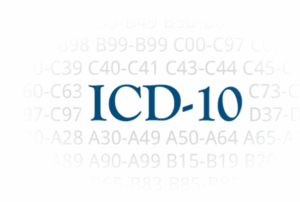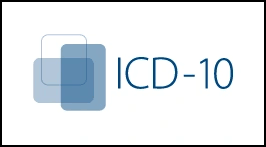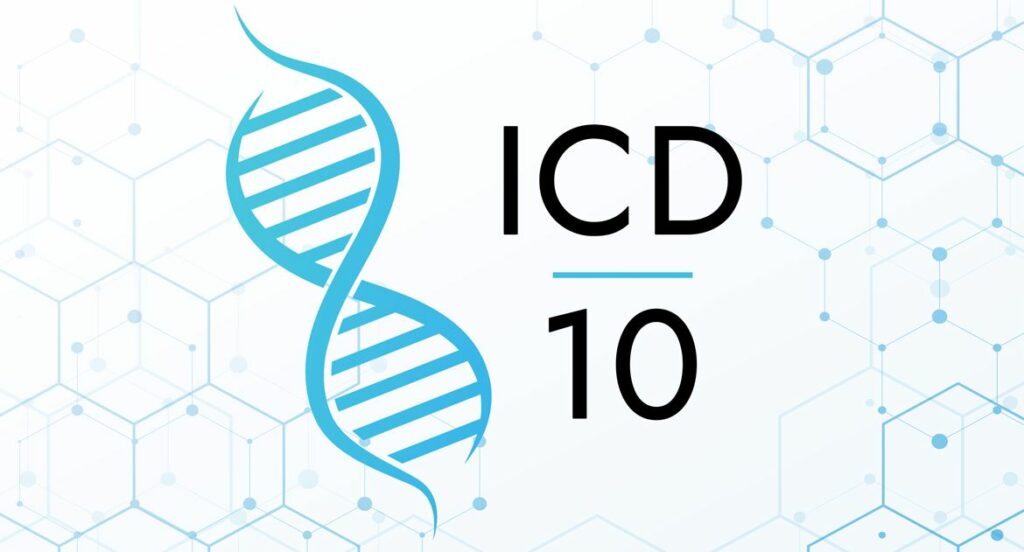In this blog post, we will be discussing bipolar disorder and the ICD-10 classification. Bipolar disorder is a mental illness that is characterized by extreme mood swings, from manic highs to depressive lows. It can be very disruptive to daily life and can cause significant problems in relationships, work, and school. The ICD-10 classification is the system used by doctors to diagnose mental illnesses. In this blog post, we will take a closer look at the ICD-10 classification of bipolar disorder and discuss some of the key features.
Contents
What Is ICD-10?
 ICD refers to the International Classification of Diseases, which is a system used by healthcare professionals to categorize diseases and disorders. The most recent version of this system is ICD-11, however, bipolar disorder is currently classified under ICD-10. It is believed that this is because ICD-11 is still in the process of being finalized.
ICD refers to the International Classification of Diseases, which is a system used by healthcare professionals to categorize diseases and disorders. The most recent version of this system is ICD-11, however, bipolar disorder is currently classified under ICD-10. It is believed that this is because ICD-11 is still in the process of being finalized.
Moreover, ICD is very technical and often confusing for those who are not healthcare professionals. Because it contains so much detailed information, ICD-11 is not expected to be finalized until 2022. In the meantime, bipolar disorder will continue to be classified under ICD-10
So, for an accurate diagnosis of bipolar disorder, it is important to understand how this condition is classified under ICD-10. This will help ensure that you receive the proper treatment.
What Is Bipolar Disorder?
Bipolar disorder is a mental illness that is characterized by extreme changes in mood. These changes can range from periods of mania or hypomania (highs) to periods of depression (lows). Bipolar disorder can also cause periods of mixed feelings, which can make it difficult to function in day-to-day life.
This condition is often defined by the presence of manic episodes. Manic episodes are periods of time when an individual experiences a marked increase in energy, activity, and/or mood. These episodes can last for days or even weeks and can be so severe that they interfere with an individual’s ability to work or take care of their personal responsibilities.
During a manic episode, an individual may also experience delusions or hallucinations. These symptoms can be so severe that they require hospitalization. After a manic episode, an individual may crash and experience a period of depression.
Bipolar ICD-10 Codes
There are four ICD-10 codes that are used to specifically diagnose bipolar disorder. These are:
- F31.0 – Current episode is manic with psychotic symptoms.
- F31.11 – Current episode mild or moderate intensity manic.
- F31.12 – Current episode severe manic without psychotic symptoms.
- F31.13 – Current episode severe manic with psychotic symptoms.
These codes are used to indicate the severity of the disorder, as well as any associated symptoms. Bipolar disorder can be a very debilitating illness, so it is important to get an accurate diagnosis in order to receive the best possible treatment.
In addition, the bipolar ICD-10 classification includes three subtypes:
- Bipolar I Disorder – In this type of bipolar disorder, patients experience one or more manic episodes. These manic episodes may be accompanied by depressive episodes, but don’t have to be.
- Bipolar II Disorder – This type of bipolar disorder is characterized by depressive episodes and hypomanic episodes, but not full-blown manic episodes.
- Cyclothymic Disorder – Cyclothymic disorder is a milder form of bipolar disorder that is characterized by periods of hypomania and periods of depressed mood. However, these periods are not as severe as those seen in bipolar I or II disorder.
If you or someone you know is suffering from bipolar disorder, it’s important to seek professional help. With proper treatment, people with bipolar disorder can lead happy and healthy lives.
Benefits Of ICD-10
 It might seem like a lot of work to implement ICD-10 but there are benefits. Implementing ICD-10 can help in several things. Some of the few are listed below:
It might seem like a lot of work to implement ICD-10 but there are benefits. Implementing ICD-10 can help in several things. Some of the few are listed below:
- Improve communication between healthcare providers, which can lead to better coordination of care.
- And having a common language can also help with research and data collection. Ultimately, this can lead to improved patient outcomes.
- Helps to ensure that patients receive the correct diagnosis and treatment.
- Allows for more specific data collection, which can be used to develop targeted interventions and track progress.
These are very basic and primary advantages of using ICD-10 but there is a lot more to it. Some other benefits can be:
- ICD-10 provides better data for public health surveillance
- Helps in monitoring the progress of disease control programs
- Allows for early detection and investigation of outbreaks
- Aids in resource allocation decisions
- Evaluation of new treatments and interventions becomes easier
- Comparison of health outcomes across different populations becomes possible.
All these factors are important in improving the quality of patient care. Therefore, if you considering implementing ICD-10, keep these benefits in mind. It might seem like a daunting task but it will be worth it in the end.
How Bipolar Disorder Is Diagnosed?
 The diagnosis is made by a mental health professional based on the person’s current and past symptoms. There are some common methods used to diagnose bipolar disorder, which include:
The diagnosis is made by a mental health professional based on the person’s current and past symptoms. There are some common methods used to diagnose bipolar disorder, which include:
- Taking a medical history: This involves talking to the person and their family members about their symptoms, as well as any other medical conditions they may have.
- Conducting a physical examination: This is done to rule out any other potential causes of the person’s symptoms.
- Ordering laboratory tests: These may be ordered to rule out other potential causes of the person’s symptoms.
- Using psychological assessment tools: These can help to assess the severity of the person’s symptoms and how they are impacting their life.
After all of this information is gathered, the mental health professional will then make a diagnosis based on the criteria in the Diagnostic and Statistical Manual of Mental Disorders (DSM). The DSM is a guide that mental health professionals use to diagnose mental disorders.
And, ICD-10 helps in the classification of mental disorders. For example, manic episodes are classified under F30.0, while depressive episodes are classified under F32.0.
How Can You Overcome This?
This disorder is characterized by extreme changes in mood. A person with bipolar disorder may be very happy and outgoing one day, and the next day they may be feeling very low and depressed. These mood swings can make it difficult for a person to maintain a normal life.
However, there are treatments available that can help people manage their symptoms and overcome this condition. Some common are listed below:
- Psychotherapy: This is a type of therapy that can help people understand their condition and learn ways to cope with their symptoms. There are several different types of psychotherapy, including cognitive-behavioral therapy and interpersonal therapy. It can help people learn how to better manage their emotions and cope with stress.
- Medication: There are several different types of medication that can be used to treat bipolar disorder, including mood stabilizers, antipsychotics, and antidepressants. Medication can help people control their symptoms and improve their overall functioning.
- Self-care: It is important for people with bipolar disorder to take care of themselves. This includes getting enough sleep, eating a healthy diet, and exercising regularly. Taking these steps can help people feel better and improve their overall health.
If you or someone you know has bipolar disorder, there is help available. Seek a mental health professional for assistance in finding the right treatment. With the proper help, bipolar disorder can be managed and people can live happy healthy lives.
Conclusion
In conclusion, bipolar ICD-10 is a serious mental illness that can have a profound effect on an individual’s life. It is important to seek professional help if you think you may be suffering from this condition. Also, you should not take any medication for the bipolar disorder without first consulting with a mental health professional.
There is no one “right” way to treat bipolar disorder and each person will respond differently to various treatments. It is important to work with a mental health professional to find the best course of treatment for you. With proper treatment, many people with bipolar disorder are able to live happy and fulfilling lives.
For more tips and guidance, you can reach out to Therapy Mantra. The team of professional counselors and therapists is more than happy to help you in your journey to recovery. Contact us today to learn more about our services. You can also book an online therapy session or download our free Android or iOS app.


